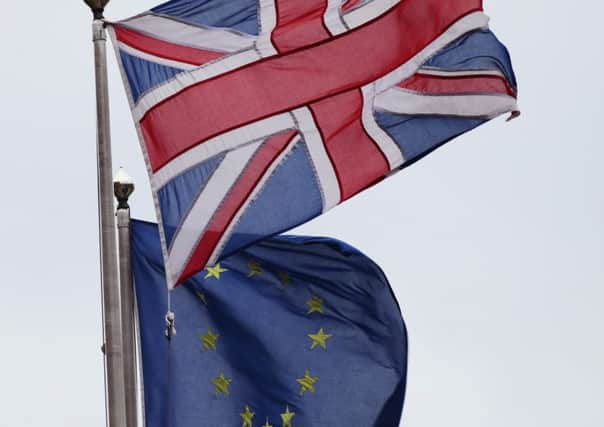Over 90% of UK academics want to remain in the EU


Voters should reflect carefully on future opportunities for their children and grandchildren.
Much has been made by the ‘Remain’ side of access to the EU ‘single market’ and the EU funding which supports our agri-food sector, infrastructure, training programmes, research and development , student exchange, tourism, environment protection and community development.
Advertisement
Hide AdAdvertisement
Hide AdConversely the ‘Leave’ campaign has argued that the net annual UK contribution to the EU could be diverted to various causes, including some in Northern Ireland, in the event of UK withdrawal. Unsurprisingly, many voters find the competing claims of both campaigns confusing.


Most polls show that the most enthusiastic Remain supporters are younger voters, particularly graduates and students in further and higher education.
This is unsurprising as interaction with their EU counterparts has fostered an international and outward looking culture on college campuses and helped prepare them for an ever more globalised world.
Northern Ireland has received more than double the overall funding per capita under the Erasmus exchange programme than the UK as a whole. Students who did an Erasmus placement are 50% less likely to experience long‑term unemployment.
Advertisement
Hide AdAdvertisement
Hide AdEqually over 90% of UK academics support Remain. Research and Development are crucial to Northern Ireland’s future. Most of today’s major research challenges are global and not solely national. Northern Ireland has played a full part in leading and participating in EU research programmes. The EU produces over a third of the world’s scientific output - 34% more than the US and that gap has grown by 4% over the last 6 years.


The EU has allocated 8% of its budget into a multinational research programme, ‘Horizon 2020’ (€80bn from 2014-2020). Northern Ireland researchers work within Horizon 2020 with partners from across Europe, as part of world-leading multinational teams. These European-led projects also attract leading research teams from around the world as associate partners, increasing UK global networking.
From 2007-2013, the EU science programme involved 170 countries worldwide. EU funds now make up 17% of the total science research grants in UK universities. Most importantly, 73% of the increase in universities’ science funding from 2007-14 can be assigned to EU sources.
When reflecting on these benefits to R&D in Northern Ireland it is worth pointing out that the UK net contribution of £8.5 billion to the EU is less than 0.5% of UK GDP, less than the UK overseas aid budget and also less than the annual UK subvention to Northern Ireland.
Advertisement
Hide AdAdvertisement
Hide AdOur population is approximately ⅟40th that of the UK. Does anyone believe that saving this sum would have more than a minimal impact on overall UK public services or business support?
There is much at stake in this referendum. The EU has initiated many changes including those related to working conditions, women’s rights, health and safety, and our environment, with major positive consequences for all. The major issue is whether we wish to continue to help shape the future economic, social and political future of the European continent and remain major players in an increasingly interconnected world, or withdraw into a more inward-looking region with ever decreasing influence on the world stage? The latter choice would deny opportunity for current and future generations.
• Professor McKenna is President Emeritus and Hon Executive Secretary of the Heads of University Centres of Biomedical Sciences (HUCBMS). He is a former Vice Chancellor and President of Ulster University and is a Member of the Royal Irish Academy.